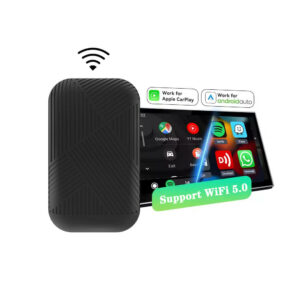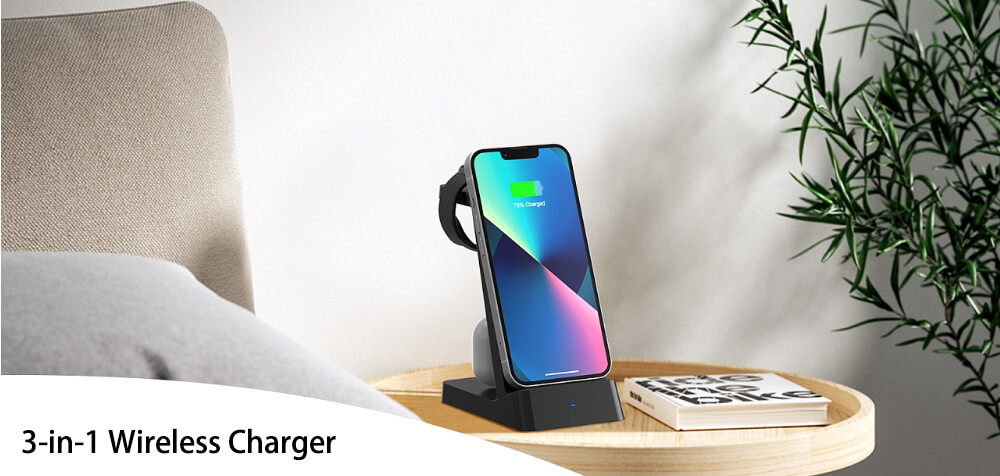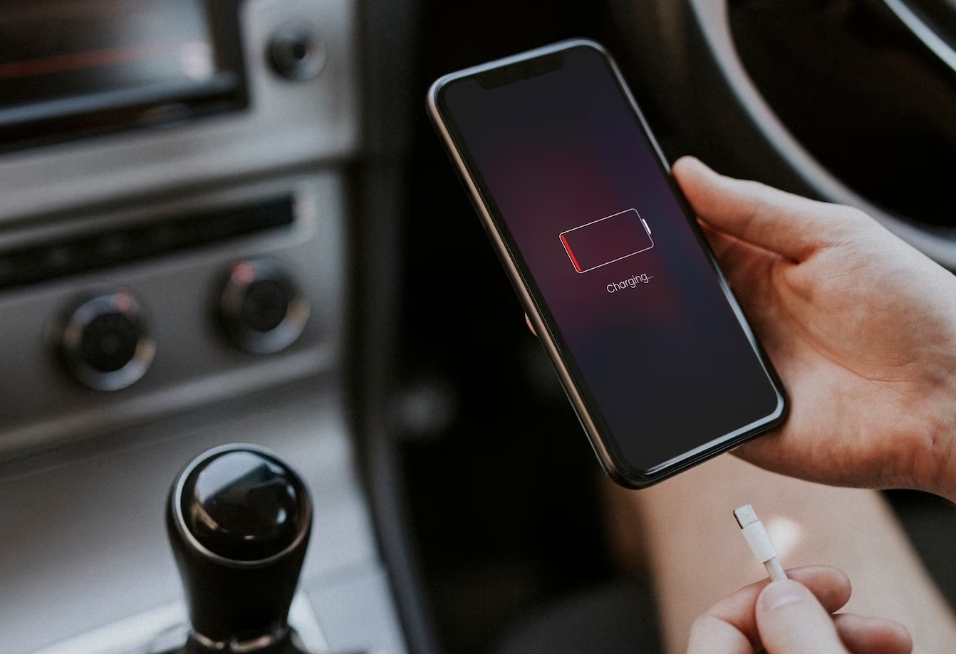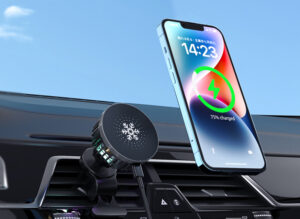Wireless Charging For Your Mobile Phone

What is Wireless Carplay adapter?
Regarding the Wireless CarPlay adapter, let’s first understand CarPlay. What is Carplay? In the center console of a car, there

The direction of our research is inductive wireless energy transmission system, and we also participate in the design of wireless chargers for cell phones of famous domestic brands.
First of all, let’s say the conclusion: whether it is wired cell phone charging or wireless cell phone charging there is almost no difference in the impact on the battery of the cell phone.
First of all, at present, the small power wireless charging of cell phone mobile devices that support wireless charging adopt inductive wireless energy transmission system.
On the cell phone side, the difference between wired charging and wireless charging is as follows:
The input of wired charging is a constant voltage source, and after a straight (DCDC) converter, usually a switched capacitor (SC), to realize the segmented power supply for the cell phone battery (constant current, constant voltage, variable current charging). While the wireless charging method, the energy through the high-frequency magnetic field in the receiving coil on the cell phone to generate high-frequency induction voltage, the frequency is generally more than 100kHz, after the compensation topology (inductive wireless charging system necessary), synchronous rectifier, DCDC converter to achieve for the cell phone battery segmented power supply.

So, whether charging is done via wired or wireless charging, the drain on the phone’s battery is almost the same.
It is one of the differences between inductive electrical energy transmission systems compared to wired systems, mainly in terms of system efficiency. As we all know, the receiving coil is indispensable in the cell phone using inductive energy transmission system. In order to minimize the impact of the receiving coil on the thickness of the cell phone, the receiving coil will be made very thin (mainstream cell phone products are generally between 0.1~0.2mm), and its internal resistance is inevitably very large (several hundred mΩ level). The internal resistance of the coil is the main source of efficiency loss and heat generation in the inductive electrical energy transmission system. One more, any electrical equipment, as long as the electricity will produce heat.
1, wireless charging is characterized by no charging line limitations, by the influence of nickel-metal hydride batteries, this battery has memory, the best way to use is to use up after charging to achieve the best state of the battery.
2, the wireless charging method is not bound by the line, each time you charge with the put and take, reducing the tedious insertion and removal of data lines. This is more conducive to maintaining the best performance of the lithium battery, do not have to wait until the end of the charge, do not have to charge too full.
Sometimes when the cable is not long enough, we will let the cell phone in the “start charging – stop charging” between the two state of switching, causing heat and damage to the battery.
Nowadays, as long as the charger head has passed 3C certification, it can be used on any cell phone. Most of the battery damage is caused by the charger itself is faulty, unstable current and voltage or direct intermittent power outages, etc., will lead to frequent cell phone. So try to use the current voltage, power size matching charger.
Wireless charging and wired charging can’t be used on top of each other, and if you charge your phone with wireless and wired charging at the same time, it will switch to the wired side in priority, and the wireless charger will automatically desert.
This is actually not difficult to understand: no matter how many tools are used to charge the phone, the input power of the phone is capped.
In order to protect themselves, even if the phone supports fast charging, only when the fast charging protocol and the phone match, you can charge the phone at a relatively fast speed, and this speed is basically the maximum value of the phone’s input current and voltage at this moment. (Here to highlight the process of charging the phone at this moment, the current and voltage are not static, to prevent ambiguity)
So count on wireless charging and wired charging together, cell phone charging speed soars …… either this thing will not happen, really want to happen, you should worry about the charging safety of the phone.

Regarding the Wireless CarPlay adapter, let’s first understand CarPlay. What is Carplay? In the center console of a car, there
1-1-300x152.jpg)
Dear partners and customers, We sincerely invite you to participate in the 2024 Spring Hong Kong Electronics Exhibition. As a

magnetic car holders in themselves do not disrupt wireless charging, unless the specific design places the magnet too close to
Phone: 0086-755-89812186
Email: sales@inputcn.com
Address: 518129 2F Building 1, Baoli Industrial Zone,
Bantian, Longgang District, Shenzhen, China.

